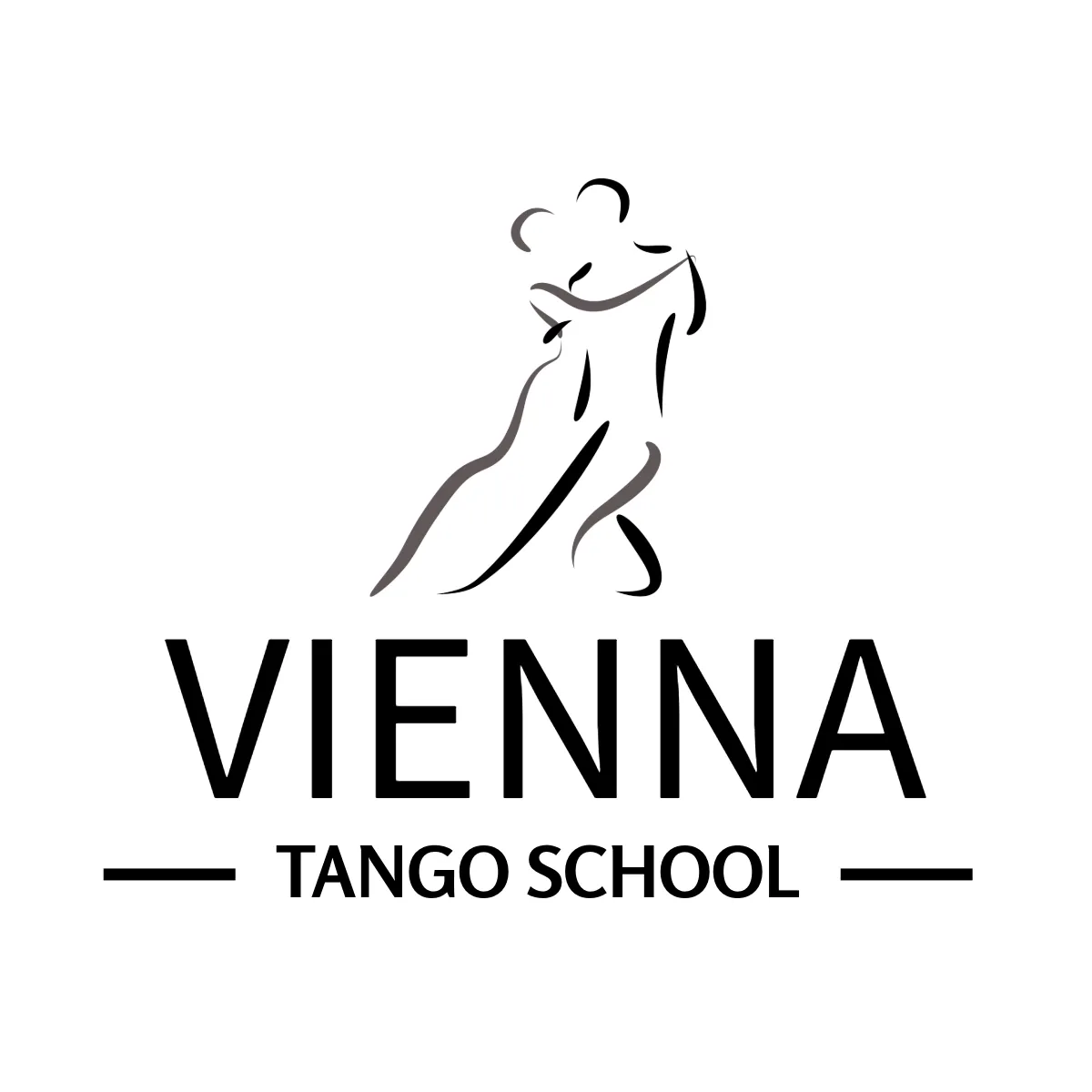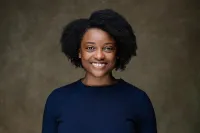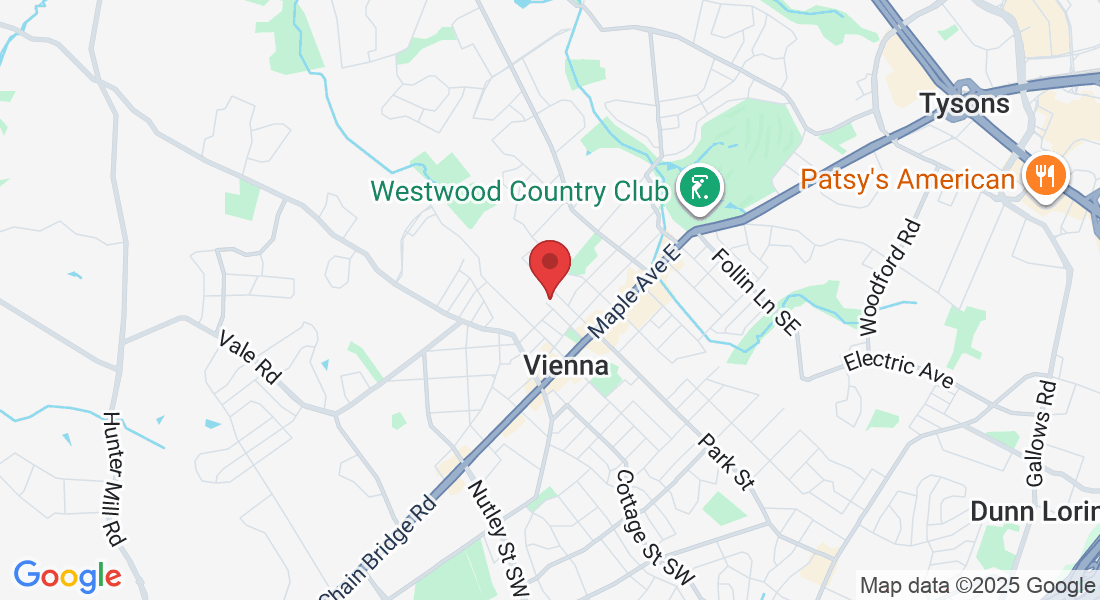Try ArgentineTango
No Partner, No Dance Experience Needed
A Four-Week Beginner Series Designed to Bring You Joy, Friends, and a New Skill
Tango Classes
INTRO
Level 1
Class
Every Thursday starting Jan 8, 2026, 7:00 - 8:00 PM
No partner or experience needed, just your curiosity! In 4 weeks, you’ll learn the embrace, walking, basic steps, and connection that prepare you to step onto the social dance floor.
Includes open practica after class (9–11 PM)
FOUNDATIONS
Level 2
Class
Open Embrace Tuesday, 8:00 - 9:00 PM
Each progressive foundations series builds on core elements, musicality, partner connection, and technique. Designed for dancers ready to move beyond “just the steps” and start dancing with depth and confidence.
Complex Topics
Pre-Milonga Class
Every 1st Saturday, 7:00 - 8:00 PM
For those who have completed at least one Tango Foundations series or are experienced dancers from the community, these classes explore vals, milonga, musicality, phrasing, and other advanced themes. We explore variety and expression to enhance your dancing.
INTRO
Level 1
Class
Every Thursday starting Jan 8, 2026, 7:00 - 8:00 PM
No partner or experience needed, just your curiosity! In 4 weeks, you’ll learn the embrace, walking, basic steps, and connection that prepare you to step onto the social dance floor.
Includes open practica after class (9–11 PM)
FOUNDATIONS
Level 2
Class
Close Embrace Tuesday, 7:00 - 8:00 PM
Open Embrace Tuesday, 8:00 - 9:00 PM
Each progressive foundations series builds on core elements, musicality, partner connection, and technique. Designed for dancers ready to move beyond “just the steps” and start dancing with depth and confidence.
Complex Topics
Pre-Milonga Class
Every 1st Saturday, 7:00 - 8:00 PM
For those who have completed at least one Tango Foundations series or are dancers from the community, these classes explore vals, milonga, phrasing, and other advanced themes. We explore variety and expression to enhance your dancing.
Weekly 7PM
(includes practice session)
No partner, no experience? No problem. Tango 101 is your first step into the world of Argentine Tango. Over four weeks, we’ll take you from zero dance experience to feeling ready to step onto the social dance floor with confidence. You’ll learn the embrace, walking, basic steps, and connection — the essentials that will let you enjoy your first milonga. Think of this as your passport to the tango community.
Weekly 8PM
(includes practice session)
Already comfortable with the basics and ready to deepen your dance? Tango Foundations is designed to strengthen and refine the core building blocks of tango. This four-week series dives into the cross system, exploring its structure, mechanics, and how it shapes musicality and partner connection. Perfect for dancers who want to go beyond “just the steps” and start dancing with real depth and confidence.
Abrazo Milonga
1st Saturday of the month
Our flagship social dance event, Abrazo Milonga brings the DC/Northern Virginia tango community together under one roof for an evening of music, movement, and connection. Whether you’ve been dancing for years or are just beginning your tango journey, this is the place to embrace the magic of the dance. Expect a welcoming atmosphere, beautiful tandas, and the warm embrace of community.
Tango Ocho Milonga
3rd Friday of the month
Our monthly beginner-friendly milonga (social dance). Tango Ocho is all about building community and making tango welcoming. We encourage role switching, partner rotation, and dancing with new people. It’s the perfect place to practice what you’ve learned in class, meet other dancers, and fall in love with the magic of tango.
Practica
Every Thursday, 8:00 - 10:00 PM
Entry fee: $5
Holiday note: ON BREAK December 17-Jan 2
Join us after the Thursday class to practice what you’ve learned in a relaxed and supportive environment. Teachers and advanced dancers will be available to answer questions and give tips. The practica is also a great place to meet other dancers, try new roles, and get comfortable with social dancing. Click here to sign up.
Events
Abrazo Milonga
Saturday, January 3, 2025
7:00PM Class - Complex Topics $25
8:00 PM - 12:00 AM Milonga
Abrazo is our signature 1st Saturday of the month milonga dedicated to the rich tradition of Argentine tango. Step into an evening of classic tandas, inviting embraces, and a warm community of dancers eager to connect.
With an atmosphere that honors tango’s timeless music and social roots, Abrazo invites dancers of all levels to immerse themselves in a night of heartfelt expression and true cultural celebration.
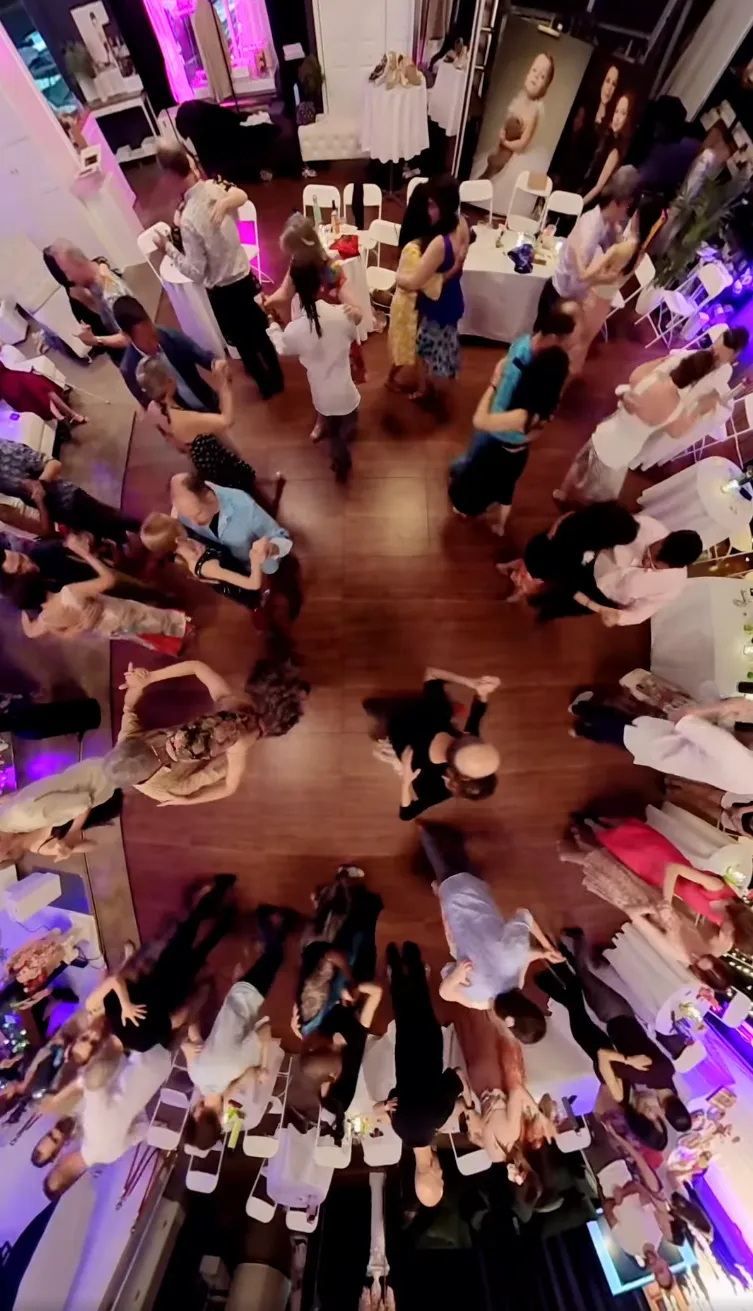
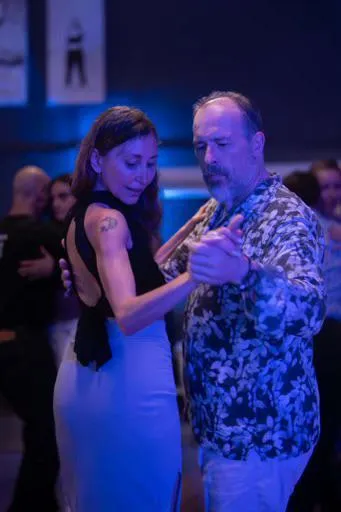
Los Amigos Milonga
December 13, 2025
3:00pm - 7:00pm
A community milonga every 2nd Saturday of the month where everyone is welcome, from newcomers, seasoned dancers, queer tango friends and allies. Alongside the dancing, we share food potluck-style, celebrate life events, and provide space and supervision for families with kids.
Expect a relaxed, low-pressure environment filled with supportive energy and plenty of time to connect.
$10 Entry (free if you bring a dish)
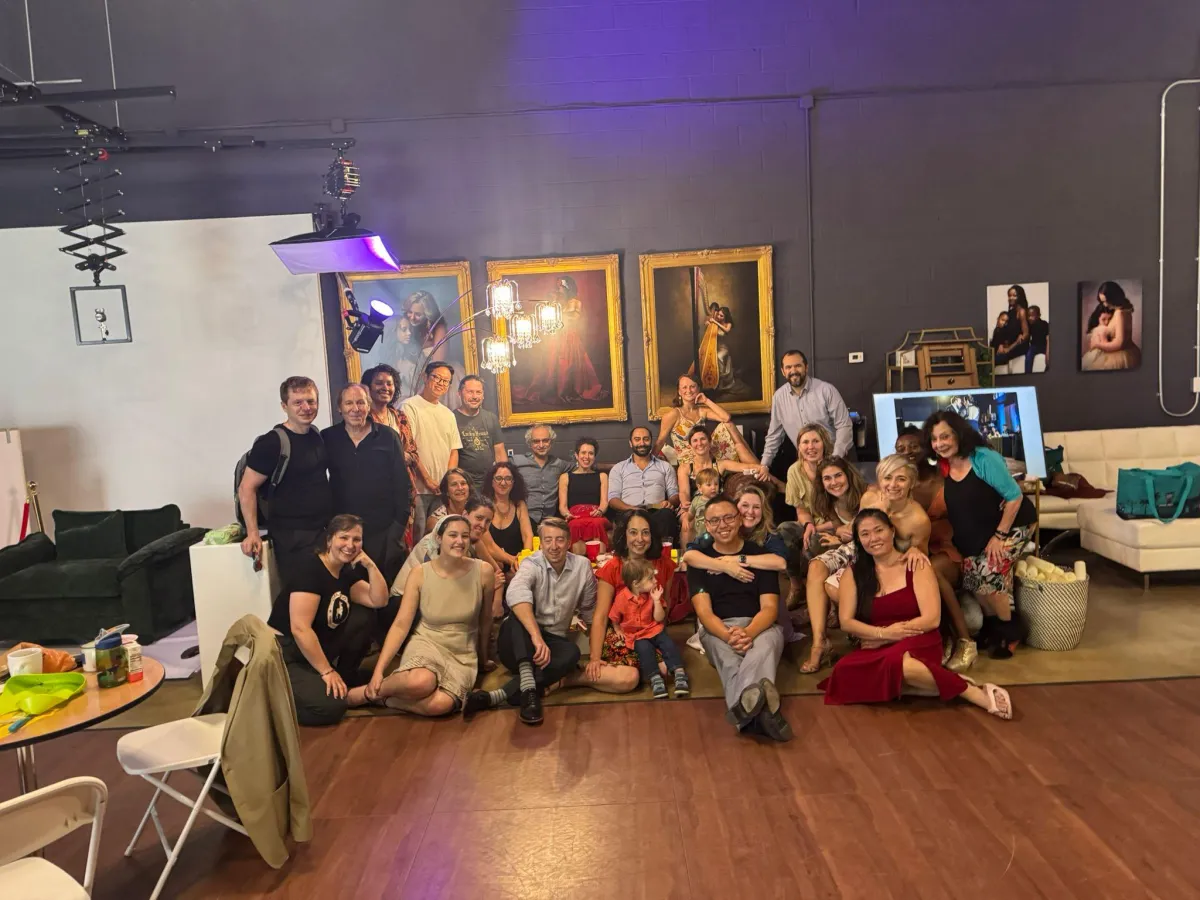
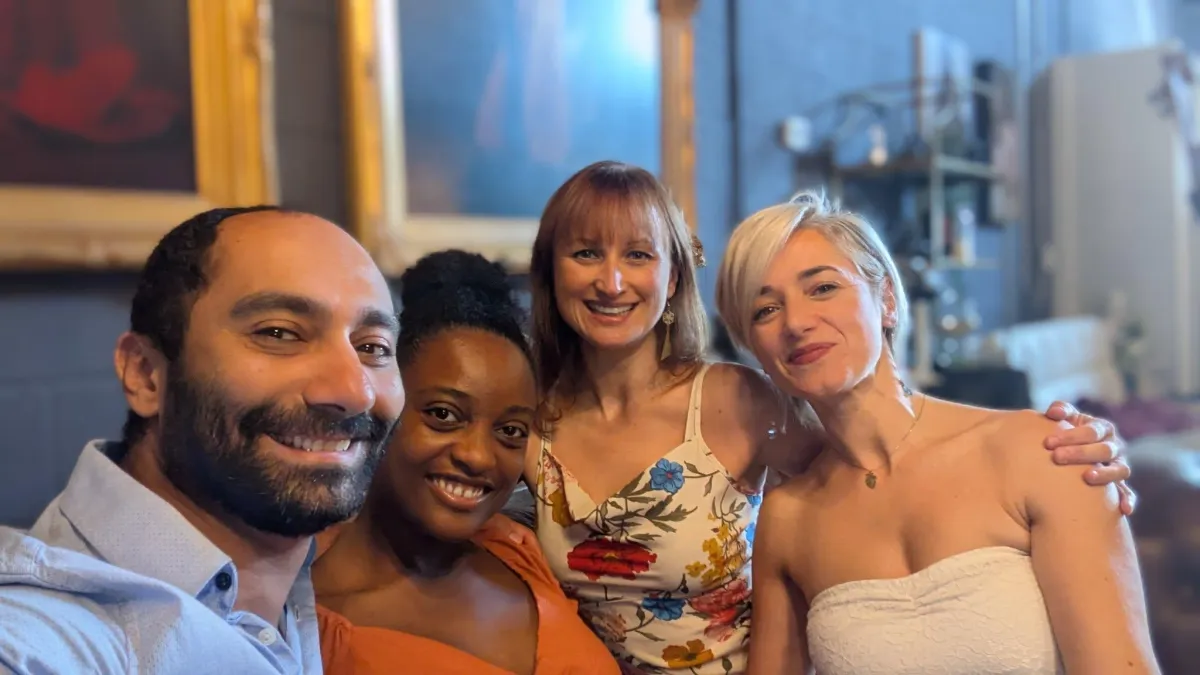
Guest Workshops
Julio & Silvina
Dec 4-7
We are excited to welcome Julio Alvarez & Silvina Tse for their first visit to the DMV! Spaces are limited.
Practica
Weekly 9PM
Stay after class to practice what you’ve learned in a relaxed and supportive environment. Teachers and advanced dancers will be available to answer questions and give tips. The practica is also a great place to meet other dancers, try new roles, and get comfortable with social dancing.
Milonga de Los Amigos
2nd Friday of the month
A community social where everyone is welcome, including newcomers, seasoned dancers, and queer tango friends and allies. We encourage role switching, partner rotation, and dancing with new people.
Alongside the dancing, we share food potluck-style, celebrate life events, and provide space and supervision for families with kids.
Expect a relaxed, low-pressure environment filled with supportive energy and plenty of time to connect.
Tango Ocho Milonga
3rd Friday of the month
Our monthly beginner-friendly milonga (social dance). Tango Ocho is all about building community and making tango welcoming. We encourage role switching, partner rotation, and dancing with new people. It’s the perfect place to practice what you’ve learned in class, meet other dancers, and fall in love with the magic of tango.
Practica
Weekly 9PM
Stay after class to practice what you’ve learned in a relaxed and supportive environment. Teachers and advanced dancers will be available to answer questions and give tips. The practica is also a great place to meet other dancers, try new roles, and get comfortable with social dancing.
Tango Ocho Milonga
3rd Friday of the month
Our monthly beginner-friendly milonga (social dance). Tango Ocho is all about building community and making tango welcoming. We encourage role switching, partner rotation, and dancing with new people. It’s the perfect place to practice what you’ve learned in class, meet other dancers, and fall in love with the magic of tango.
Abrazo Milonga
1st Saturday of the month
Our flagship social dance event, Abrazo Milonga brings the DC/Northern Virginia tango community together under one roof for an evening of music, movement, and connection. Whether you’ve been dancing for years or are just beginning your tango journey, this is the place to embrace the magic of the dance. Expect a welcoming atmosphere, beautiful tandas, and the warm embrace of community.
Membership & A la carte Offerings
VTS Membership
ONGOING
You’ll receive everything in the Tango Intro Offer and:
Weekly Progressive Classes
Monthly Complex Topics (Pre-Milonga Class)
Monthly Flagship social event (Abrazo MIlonga)
Priority access to early-bird tickes, workshops, and private lessons for invited guest teachers
That’s a $205 total value and 26+ hours of dancing — all included for just $99.
Tango Intro Offer
Begins January 8, 2026
You’ll receive 30 days of unlimited access to:
Weekly Tango Intro Classes (from zero to dance floor–ready)
Weekly Practicas (open practice with guidance)
Monthly Tango Crash Course (Pre-Milonga Class)
Monthly Beginner-friendly community social (Los Amigos)
That’s a $90 total value and 18 hours of dancing — all included for just $39.*
*Available only to brand new dancers who are completely new to Argentine Tango. The offer applies to the first month of classes only. Each dancer may participate in one (1) Intro Series month. This offer cannot be repeated, renewed, or combined with other introductory offers.
Tango Foundations
Foundations Circular Motion Begins January 6, 2025
A La Carte
You’ll be enrolled in a six-week Foundations series held every Tuesday. This is a progressive course where each class builds on the last.
8:00 PM - 9:00 PM Tuesday Foundations Class - Circular Motion
Starts January 6th
Thursday
8:00 PM- 10:00 PM Open Practica Included
Special Topics
Special Topics Class : Navigation & Dancing in Small Spaces Begins January 6, 2025
A La Carte
You’ll be enrolled in a four-week Special Topics series held every Tuesday. This is a progressive course where each class builds on the last.
7:00 PM - 8:00 PM Tuesday Special Topics
Starts January 6th
Thursday
8:00 PM- 10:00 PM Open Practica Included
Practica
A La Carte
9:00 PM - 11:00 PM
Open practica every Thursday (starting January 8th, 2025) for VTS students and the DMV tango community. Included in the Intro and Membership options.
Abrazo Milonga
January 3, 2025
A La Carte
7:00 PM - 8:00 PM Pre-milonga class - Complex Topics
8:00 PM- 12:00 AM Milonga
1:1 Coaching
A La Carte
Available only to students in our Progressive Series. Because tango is an improvisational dance, learning with different partners is essential to grow. Individual coaching is optional and best for refining specific techniques. These 1-hour sessions will serve as a complement, not a substitute, for the progress you make in group classes.

About Us
TAKE one STEP
DISCOVER TANGO
Vienna Tango School began as a collaboration between three tango dancers who fell in love with the dance’s unique blend of connection, artistry, and community. Determined to share that joy with others, they created a welcoming space where anyone—regardless of age or experience—can discover the magic of Argentine tango. Today, Vienna Tango School fosters a vibrant, supportive environment in Northern Virginia, uniting new and experienced dancers alike in the timeless tradition of tango.
Together, we invite you to step into the music, meet new friends, and experience the shared passion that brought our founders together in the first place.
Blog & Articles

Women in Tango Orquestas: The Ones Who Played Anyway
[Photo Credit: Multiple sources]
When we think of tango’s golden age, most of us imagine a stage filled with men: bandoneonistas, violinists, sharp-suited crooners. Women, if present, are often dancers in heels or wistful voices singing of heartbreak. But that image, as iconic as it may seem, leaves out a truth that’s far more complex—and far more compelling.
Women have always been part of tango. They just haven’t always been visible.
Where Were the Women?
Tango was born in a tough, male-dominated world—Buenos Aires ports, brothels, working-class bars.
Explore this history more in our blog The Tango Brother Myth
Respectable women were discouraged from participating in nightlife, let alone playing bandoneón onstage. As tango professionalized in the 1930s and ’40s, it got worse. Industry gatekeepers insisted tango lyrics were “male stories” and that women’s voices didn’t suit the genre [1]. Even once female singers gained popularity, female instrumentalists and composers were nearly erased. The most celebrated era of tango music—the one we still dance to at milongas—is also the one where women were most excluded.
But here’s the thing: some women played anyway.
The Ones Who Broke Through
The women below are just a handful of the many who defied tango’s gender barriers—artists who made space for themselves in an industry that rarely welcomed them. Even these descriptions are just snapshots, trimmed for the sake of article length. Each of these women lived a story worth digging into. If one catches your ear, let that curiosity lead you—you’ll find even more depth, complexity, and brilliance waiting just below the surface.
In the 1920s, Paquita Bernardo defied norms by becoming the first female bandoneonista in tango, earning her the nickname La Mujer Bandoneón. Also fondly known as La Flor de Villa Crespo, she led her own orchestra, mentored a young Osvaldo Pugliese. Though she died tragically young, her compositions were recorded by leading artists of the time, including Carlos Gardel. [2]
Around the same time, singers like Rosita Quiroga and Azucena Maizani brought a raw, urban voice to tango’s early recordings. Rosita was one of the first female voices to record tango songs on disc and became known as “the most authentic interpreter of arrabal tango”, bringing the flavor of the streets into her singing [2]. Azucena often performed in male attire—fedora, suit, swagger—and helped normalize the idea of women singing tango’s gritty narratives [1]. She wrote and composed many songs including Pero Yo Sé (most popular recording by Angel D'Agostino) and worked with icons like Carlos Gardel, becoming one of the defining voices of tango’s early radio and film era [3].
Then came Ada Falcón, whose haunting vocals with Francisco Canaro made her a superstar in the 1930s. Her recording of “Yo no sé qué me han hecho tus ojos” is still considered one of the most emotionally charged valses in tango history. She walked away from it all in 1942, retreating to a convent and leaving behind an air of myth. Her absence itself spoke volumes about the costs women often paid in show business back then. [2]
Another towering figure of the era was Mercedes Simone, often called La Dama del Tango for her refined presence and expressive clarity. Simone was not only a celebrated singer but also a composer, writing her own lyrics and music at a time when few women were credited for either. With over 240 recordings and a career that spanned radio, live tours, and international acclaim, she helped bring tango canción to a wider audience across Latin America and Europe. [4]
In 1950s Uruguay, Nina Miranda became the leading voice of Donato Racciatti’s orchestra—a rare case of a woman fronting a typical tango orquesta during the Golden Age. Her version of “Maula” was a massive hit. [5]
And there was Libertad Lamarque, who not only recorded over 2,000 songs but became a silver-screen legend across Latin America. Exiled to Mexico after a clash with Eva Perón, she turned her career global, taking tango with her. [6]
Nelly Omar, another iconic voice, was banned in Argentina for her Peronist sympathies but returned to the stage in her 90s. She lived and sang to 102—her voice a testament to tango’s enduring spirit. [2]
By the late 1960s, tango had begun to fade in popularity, but Susana Rinaldi brought it roaring back—on her own terms. She sang classic tangos originally written for male voices, often without changing the lyrics, forcing audiences to hear those stories in a new, sometimes jarring, light. She gave voice to contemporary female composers like Eladia Blázquez, whose poetry expanded tango’s emotional vocabulary. [7]
The Modern Resurgence and Why It Matters
For decades, the industry’s bias kept women out of the orquesta pit. Even as late as the 2000s, women made up less than 15% of featured performers in tango festivals. But today, things are shifting [8].
New all-women ensembles like China Cruel [9], Orquesta Mujeres (Camila Arriva) [10], and La Empoderada Orquesta Atipica [11] are reclaiming space on the stage. They perform music written by women—past and present—and sometimes rewrite old lyrics to challenge tango’s misogynistic legacy.
Fun fact: The podcast episode on Camila Arriva [10] was produced by Liz Sabatiuk, a beloved former DMV tanguera now based in Spain. Though she’s moved away, her presence is still felt in our community.
Groups like China Cruel don’t just cover classics—they write songs about femicide, street harassment, and love on their own terms [12]. Their music is raw, witty, fierce. And above all—tango.
Tango is a feeling. A sound. A story we live in every time we embrace on the dance floor. But for too long, those stories were told by only half the population. When women step into the orquesta—whether singing, playing, or composing—they’re not just filling a gap. They’re expanding tango’s soul.
So next time you hear that bandoneón cry, ask yourself: whose voice is still missing? And what do we gain when we finally listen?
🎧 P.S. Looking to explore more women shaping tango today? Check out Heyni Solera, a talented DC-based bandoneonista, composer, and podcaster. She’s one of the few women in the U.S. carving space in the tango instrumental world, and her podcast Tango Unwind dives deep into the art, culture, and personal stories behind the music.
👉 heynisolera.com
Sources:
[1] 1920 – 1945 Azucena Maizani – Drag King History (Blog)
[2] Pioneras del Tango | Buenos Aires Ciudad - Gobierno de la Ciudad Autónoma de Buenos Aires (Article)
[3] Biography of Azucena Maizani (Todotango)
[4] Biography of Mercedes Simone (Todotango)
[5] Nina Miranda (Tango Singer) (Blog)
[6] Libertad Lamarque; Legendary Latin American Actress, Singer (LA Times Article)
[7] Biography of Susana Rinaldi (Todotango)
[8] All-women Argentina tango festival calls for end to machismo | Women's Rights News (Al Jazeera Article)
[9] Asado Y Tango - China Cruel (Blog)
[10] Humans of Tango - Camila Arriva (Podcast)
[11] We want more feminists to listen to tango (Pagina 12 Article)
[12] The other tango: feminist, with reversed roles and a gender perspective (Perfil Article)
Written by Vienna Tango School with drafting support from ChatGPT-4.5 model, using a combination of peer-reviewed studies, psychological research, and community insights to explore the emotional and neurological effects of Argentine tango.
Written by Vienna Tango School with drafting support from ChatGPT-4.5 model, using a combination of peer-reviewed studies, psychological research, and community insights to explore the emotional and neurological effects of Argentine tango.
Our Services
Lorem Ipsum is simply dummy text of the printing and typesetting industry has been the industry's standard dummy text ever since the been when an unknown printer.



Our Best Trainers
Lorem ipsum dolor Fusce varius euismod lacus eget feugiat rorem ipsum dolor consectetur Fusce varius [...]
Yoga exercise
Lorem ipsum dolor Fusce varius euismod lacus eget feugiat rorem ipsum dolor consectetur Fusce varius [...]
Gym
Lorem ipsum dolor Fusce varius euismod lacus eget feugiat rorem ipsum dolor consectetur Fusce varius [...]



Cardio
Lorem ipsum dolor Fusce varius euismod lacus eget feugiat rorem ipsum dolor consectetur Fusce varius [...]
Zumba
Lorem ipsum dolor Fusce varius euismod lacus eget feugiat rorem ipsum dolor consectetur Fusce varius [...]
Exercise
Lorem ipsum dolor Fusce varius euismod lacus eget feugiat rorem ipsum dolor consectetur Fusce varius [...]
Meet the Team
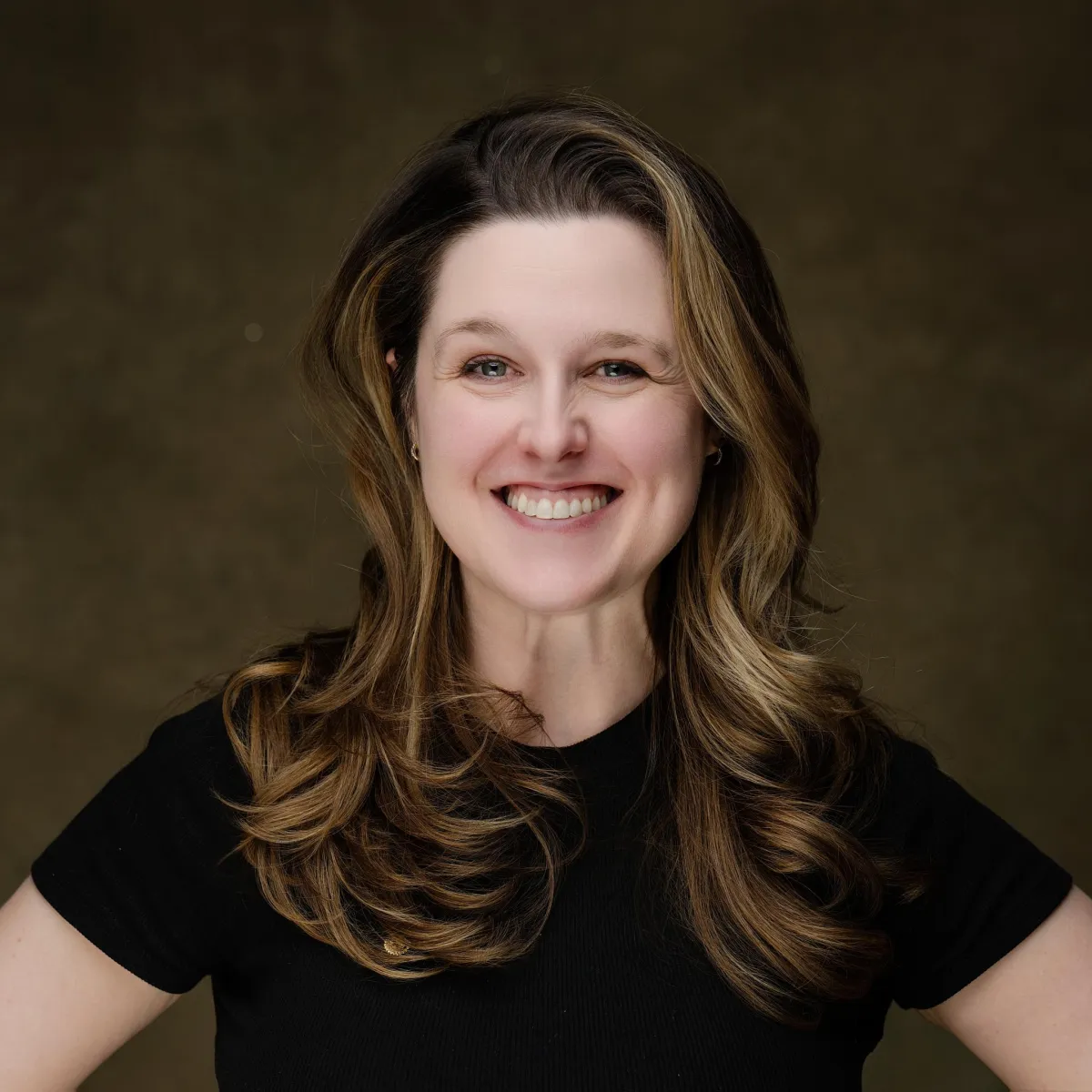
Melody Yazdani Zhang
Cofounder
Melody Yazdani Zhang stumbled upon tango by chance over 11 years ago, and it quickly became the lifeline she needed as a busy single mom. Since then, she’s traveled the world to dance and studied with acclaimed maestros. She believes that if you can walk, you can dance.
For Melody, the connection between partners, the embrace, and true mindfulness define tango’s magic. She loves how tango offers a peaceful escape from a fast-paced world, fosters lasting friendships (and marriages!), and provides the thrill of endless learning.
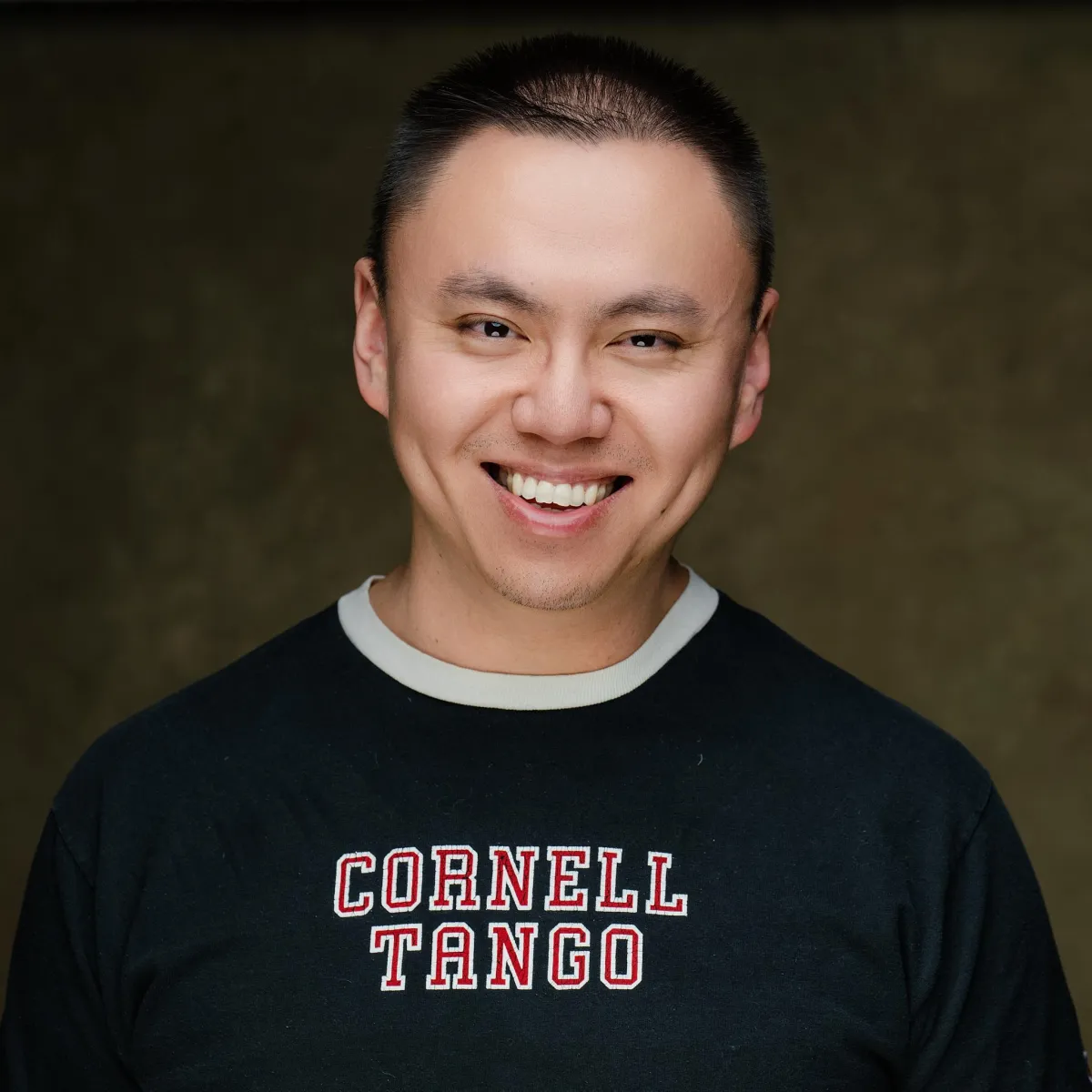
Jon Zhang
Cofounder
Jon began dancing tango in 2007 while studying engineering at Cornell University. He describes tango as difficult, but ultimately deeply rewarding, noting that it provides a rare outlet for creative expression that nurtures the soul.
During his time in Ithaca, New York, Jon served as both an organizer and a DJ, fostering a close-knit tango community before relocating to the Washington, D.C. area a decade ago. Ever since, he’s been an active member of the D.C. tango scene, continuing to share his passion for the dance and its unending possibilities.
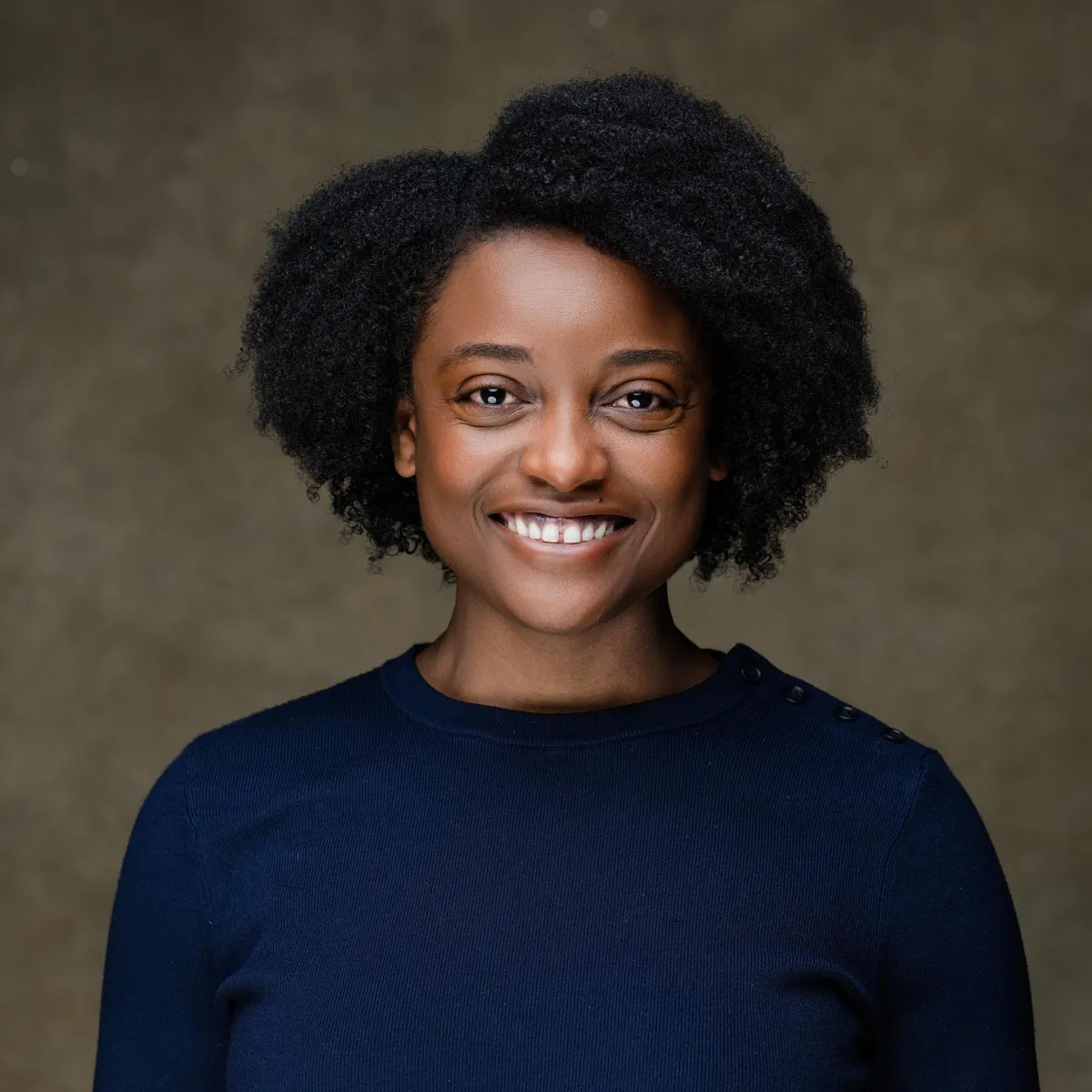
Amanda Garley
Cofounder
Amanda Garley first discovered tango in the summer of 2009 while studying to become an engineer. The timing was ideal, awakening her to life’s real joys: connecting with others, finding balance, being confident in who she is, taking life by the horns, recognizing perfection in imperfection, and remaining open to unexpected discoveries.
She has spent half of her tango journey exploring how best to teach the dance, deepening her understanding of tango’s essence, its fundamental challenges, and the ways to help others reach satisfaction in their own dance. Now, she is thrilled to continue this journey through the Vienna Tango School, sharing her passion and expertise with new and seasoned dancers alike.
Frequently Asked Question
I’m brand new—Is that okay?
Absolutely! Our beginner classes are designed for first-timers with no dance experience. We’ll guide you step by step.
What should I wear?
Come in comfortable clothes or exercise attire. Shoes with a smooth (leather) sole work best. If you don’t have tango shoes, don’t worry—we have shoe covers available.
Do I need a partner?
No partner needed. Even if you come with someone, we encourage everyone to switch partners during class. It’s a social dance, and dancing with different people enriches your tango skills.
Where are the classes located?
We are located in the heart of Vienna, Virginia, just off of 495 and 66. We’re inside Melody Yazdani Studios, right next to Billy Weber Tire. You can park in the lot directly in front of the building.
Will I need to lead or follow?
We support learning both roles regardless of gender. Experiencing both lead and follow helps you become a more versatile dancer—and it’s more fun!
Follow us On Instagram




